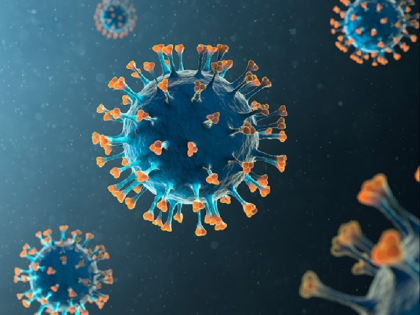Covid-19 Surge In Asia: Could the JN.1 Variant Spark a Global Resurgence?
By Lokmat English Desk | Updated: May 19, 2025 17:02 IST2025-05-19T17:01:41+5:302025-05-19T17:02:23+5:30
Concerns are being raised globally as a new wave of COVID-19 has surfaced in parts of Asia. Singapore, Hong ...

Covid-19 Surge In Asia: Could the JN.1 Variant Spark a Global Resurgence?
Concerns are being raised globally as a new wave of COVID-19 has surfaced in parts of Asia. Singapore, Hong Kong, China, and Thailand are among the nations reporting a significant rise in new infections. The proliferation of new Omicron subvariants, such as JN.1 and its related progeny, is primarily responsible for this rise, which has caused health officials to become more vigilant. Infections in Singapore alone increased dramatically from 11,100 cases in the latter week of April to over 14,000 cases in early May 2025. ICU cases have slightly decreased, despite hospitalisations still increasing. According to officials, there is no proof that the current variations are more severe or contagious than those that have been observed in the past.
Periodic waves are expected, and the increase could be ascribed to declining immunity. LF.7 and NB.1.8, both descended from JN.1, are currently the most common variations, accounting for more than two-thirds of sequenced cases. Indian health officials have not seen a notable increase in cases at home, despite a spike in cases around Asia. The Ministry of Health and Family Welfare reports that as of May 19, 2025, there are 93 current COVID-19 cases nationwide.
Although there is no sign of a new wave, doctors in Mumbai have observed a tiny increase in mild cases, mostly among younger people. Health officials advise ongoing monitoring, particularly in light of the increased transmission in surrounding nations.
Also Read: Construction firm IRB Infra’s net profit crashes 96 pc in Q4 FY25
JN.1 Strain:
The Omicron BA.2.86 lineage, which was discovered in August 2023, is the ancestor of JN.1. In December 2023, WHO designated it as a Variant of Interest. More than any other version in circulation at the time, this variant has over 30 mutations designed to evade immunisation. However, of the SARS-CoV-2 strains that were present in late summer and early autumn of 2023, BA.2.86 did not emerge as the dominant strain.
Through one or two more modifications, JN.1, a descendent of BA.2.86, has acquired the ability to transmit more effectively. According to Johns Hopkins University, a university in Maryland that emerged as one of the most trustworthy worldwide sources for COVID-19 data throughout the pandemic, JN.1 has changed to spread more efficiently even though it still possesses the immune evasion traits of its ancestor.
Open in app